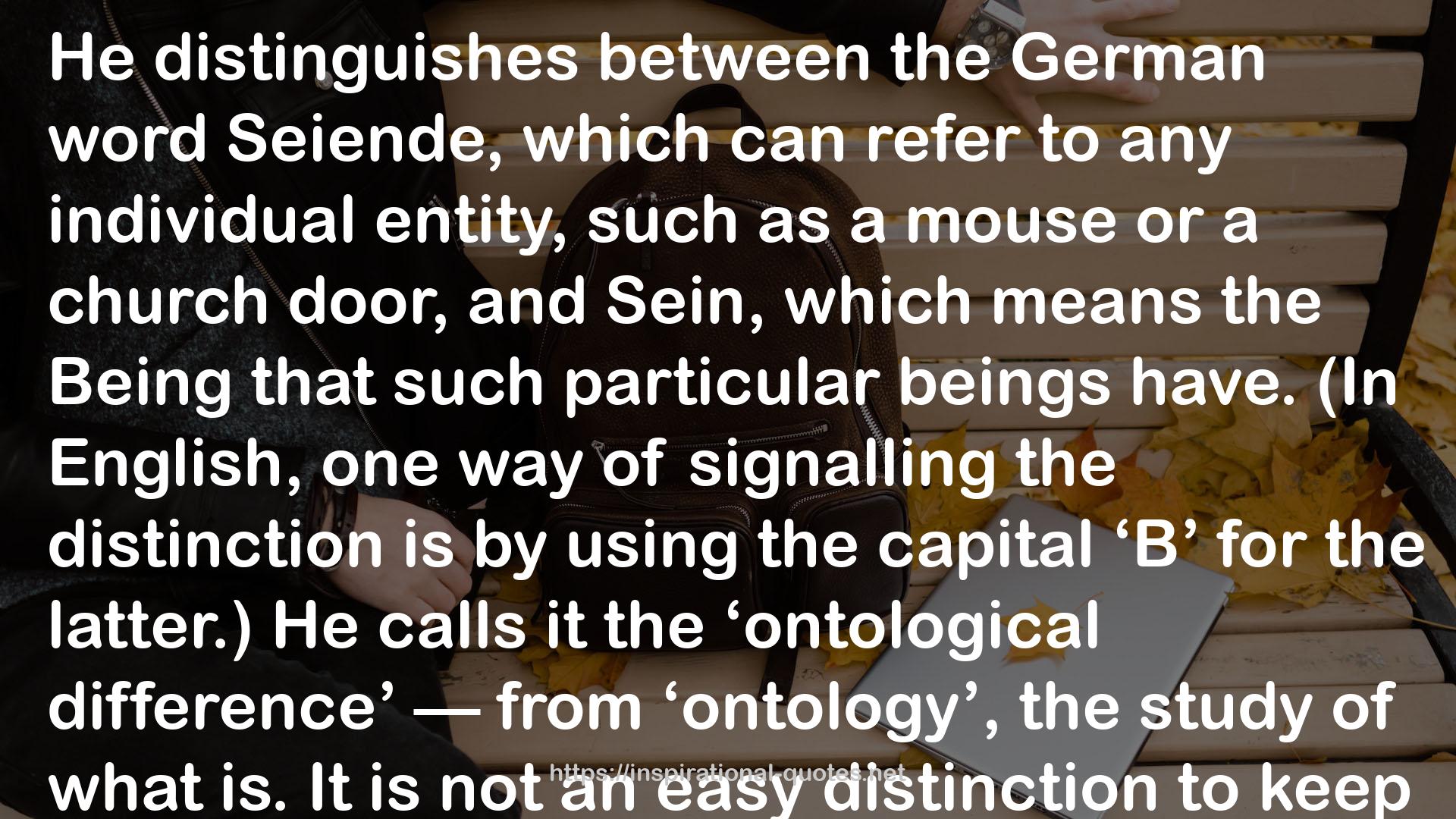" He distinguishes between the German word Seiende, which can refer to any individual entity, such as a mouse or a church door, and Sein, which means the Being that such particular beings have. (In English, one way of signalling the distinction is by using the capital ‘B’ for the latter.) He calls it the ‘ontological difference’ — from ‘ontology’, the study of what is. It is not an easy distinction to keep clear in one’s mind, but the ontological difference between Being and beings is extremely important to Heidegger. If we get confused between the two, we fall into errors — for example, settling down to study some science of particular entities, such as psychology or even cosmology, while thinking that we are studying Being itself. Unlike beings, Being is hard to concentrate on and it is easy to forget to think about it. But one particular entity has a more noticeable Being than others, and that is myself, because, unlike clouds and portals, I am the entity who wonders about its Being. It even turns out that I have a vague, preliminary, non-philosophical understanding of Being already — otherwise I would not have thought of asking about it. This makes me the best starting point for ontological inquiry. I am both the being whose Being is up for question and the being who sort of already knows the answer. I "
― Sarah Bakewell , At the Existentialist Café: Freedom, Being, and Apricot Cocktails
